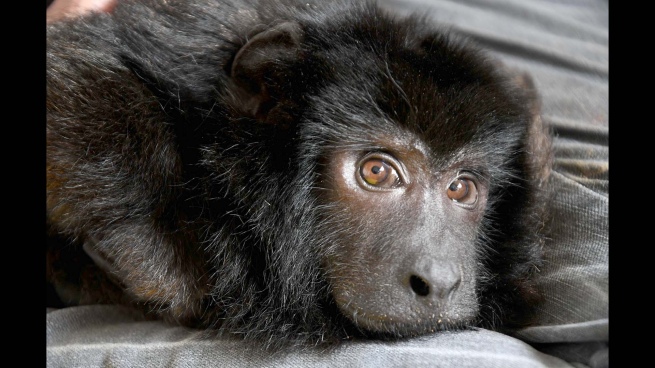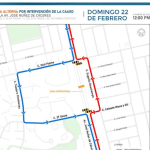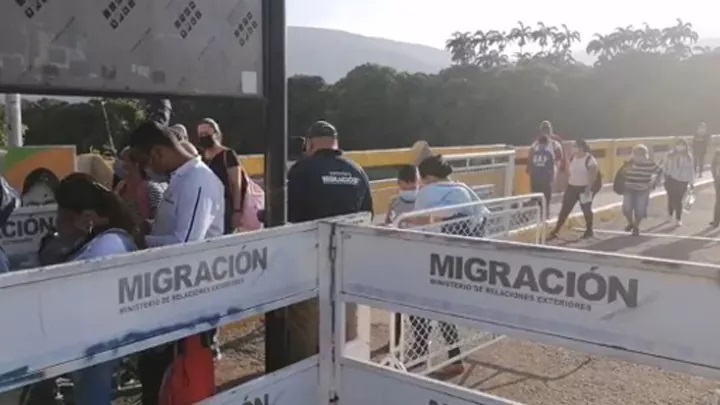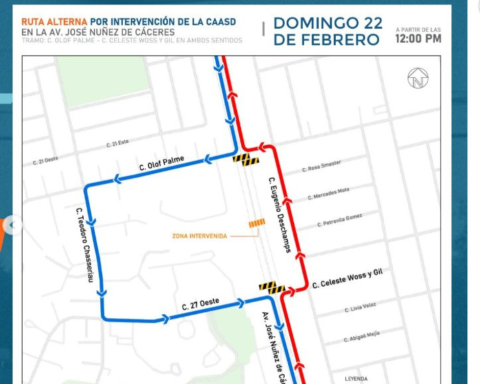almost 70 years since the Animal Abuse Law was sanctionedorganizations, activists and legal specialists demand tougher sentences for those who commit acts of cruelty, although they recognize the importance of educating and making society aware of the animalist perspective, within the framework of Animal Day, which is celebrated every April 29 .
Argentina has three criminal laws that protect the rights of animals at the national level.
One of them is Law 14,346 “Ill-treatment and acts of cruelty towards animals” sanctioned in 1954, which establishes prison sentences of fifteen days to one year for anyone who commits acts of ill-treatment or cruelty towards an animal, which was sought reform in 2019 in the Chamber of Deputies, but eventually lost parliamentary status.
“The sentences are very low, it is a releaseable crime and that is why it was requested that a minimum of four years be reached,” Griselda Engelhard, a lawyer who is a member of the Association of Officials and Lawyers for Animal Rights (Afada), explained to Télam. .
In this sense, he explained that in addition to the hardening of sentences, a new law has to contemplate a section dedicated to the education since “nothing better than teaching children respect for the lives of other animals from the beginning”.
“Animals went from being a thing to being a subject of law, but the current law does not contemplate it because if you are going to declare all animals people there are activities that could not continue”Griselda Engelhard, lawyer member of Afada
Engelhard considers that the normative plexus must be complemented with other laws or include chapters in which all kinds of shows in which animals participate are prohibited, prohibit experimentation, prevent sales so as not to encourage clandestine farms and classify crimes as abandonment, traction to blood (Tas) and bestiality.
“Today, justice handles cases as an act of mistreatment or cruelty, and since the criminal type is broad, it will be left to the judge’s discretion through proof of veterinary reports whether or not it is a crime, since they are not properly defined,” he remarked.
On the other hand, the jurisprudential construction of “non-human person”which was granted for the first time in the country to the orangutan Sandra in 2014, and which was later obtained by some primates and the elephant Mara in 2020, is not contemplated in any current regulations and was achieved through singular failures.
“In those cases, the animals went from being a thing to being a subject of law, but the current law does not contemplate it because if you are going to declare all the animals people, there are activities that they could not continue, and we know that there are vested interests,” he explained. Engelhard.
In addition, it indicated that article 227 of the Civil and Commercial Code considers animals “things”leaving out concepts such as “being sentient” or “being sentient”.

The second animal defense law is 22,421, which was passed in 1981 and protects wildlife, taking care of endangered species, regulating hunting and controlling the environment in which they live.
To which is added the most recently sanctioned Law 27,330 of “dog racing ban” of 2016, which establishes imprisonment from three months to four years and a fine of $4,000 to $80,000 for those who carry out these practices, and for which hundreds of greyhounds have been rescued and adopted in recent years.
Motivated by this regulation, the Civil Association Fight for Social Integration and Animal Law (Aluisa) seeks to sanction a law of “NOMASTAS”which ends with the informal activity of urban waste collection involving a horse, a donkey or another animal.
The initiative was presented in the Chamber of Deputies but lost parliamentary status in 2019 and again in 2021.
“The Tas requires a particular law because it involves a complex problem,” Eliana Couso, president of Aluisa, told Télam, who stressed that the association rejects any type of animal exploitation.
“That we use animals for a sport, to dress ourselves, to eat them or as a means of transportation is something that the human being attributed to the animal”, explained Couso, against the idea that the defenders of the races supported when they said that “the greyhounds were born to run”.
The activist emphasized that the Tas has a related problem, which is the equine slaughter, since in Argentina there is no culture of eating horse meat, which is exported. “But stolen horses were found, and the animals that pull carts and consider that they are no longer useful go to what is called a ‘bin’; there is a market that should be investigated,” he warned.
Other current bills in the Chamber of Deputies are the “Minimum Protection Budgets for Urban Fauna” and the one of “My Vegan Menu” to implement in restaurants menus that contain a plate of that type of food.

For Clara Rigou, one of the legal managers of the NGO Pichichos al Rescate, animal abuse transcends the physical level to the emotional and psychological level, and criticized that “the penalties are low and the rulings such as that of Chocolate (the dog that died after being brutally attacked in Córdoba) are one in a million. The animals are in the background. “
Although he considered that there is “an enormous change at the social level with respect to the figure of the animal, and in some cases dogs and cats are considered members of the family.”
“For it to be massive and to establish the problem of animals on the street, the State has to accompany”Clara Rigou, member of the NGO Pichichos al Rescate
Thus, Rigou stressed the importance of “raising awareness” and the idea that “we can all walk dogs; a laundry room is better than the street.”
“They can make transfers or donate if they don’t have time. Although for it to be massive and the problem of animals on the street is established, the State has to accompany it,” he insisted.
Along the same lines, Couso said that “there is a paradigm shift that has to do with the environment and animals that we do not see reflected in the legislation, but this is creating the bases.”
“You can have the best law, but the Judiciary has to have an animalist perspective and be trained”assured and added that “penetrate academic spaces such as talks, forums, subjects and diplomas in animal protection forge the foundations for the future.”
Sandra, Chocolate and Coco, non-human persons
The classification of “non-human person” applied in an unprecedented way to the orangutan Sandra in 2014, the trial of the man who skinned the dog Chocolate alive, who died days later, and the rescue of Coco, a carayá monkey who was found with his body stunted by the ill-treatment received in a Buenos Aires mansion, they have shed light in recent years on some advances in justice in the face of the scarce regulations against animal abuse.
New legal figures and innovative rulings emerged to safeguard the rights of animals, as happened with Sandra, an orangutan born in captivity in 1986 who became the first “non-human person” recognized as a subject of rights by Argentine justice in 2014.
• SANDRA
Sandra spent 20 years in the former Buenos Aires zoo, currently Ecoparque, in Palermo, until in an unprecedented ruling, Judge Elena Liberatori considered her “a sentient being” and ordered the Buenos Aires government to guarantee “the natural conditions of the habitat and activities necessary to preserve their cognitive abilities.
In 2019 Sandra was transferred to the Center for Great Apes in the state of Florida, United States, where she currently lives.
• CECILY AND MARY
The story of the orangutan was followed by that of the chimpanzee Cecilia and the elephant Mara, also declared subjects of law.
Cecilia, who spent two decades in the Mendoza zoo, was transferred by a court ruling in 2017 to the Sorocaba Sanctuary, in Brazil; and Mara derived from the Buenos Aires Ecopark to an elephant sanctuary located in Mato Grosso in an operation carried out in May 2020, in the midst of the coronavirus pandemic.
• COCONUT
The case of Coco, a carayá monkey rescued in a raid last December in the Belgrano neighborhood, while a massive party was taking place, was added to the long history of mistreated animals.
Coco was found locked in a closet without light, water or ventilation and in terrible health conditions with atrophied body parts and malformations.
He is currently at the Zorba Foundation awaiting a report from the Argentine Primatology Association (Aprima) on his state of health, which will determine if his transfer to the “Caraya Project” rescue center in the province of Córdoba is feasible.
The organizer of the party was charged with illegitimate possession of species from wildlife trafficking.
• CHOCOLATE
Worse was the crime of the Chocolate dog, which marked a turning point, when his case reached an oral and public trial for animal abuse for the first time.
The three-month-old puppy was skinned alive and after an eight-day agony at a veterinarian, he died in the Cordovan city of San Francisco in 2017, a crime for which the hairdresser Germán Gómez, who lived next to the house where he was, was accused. the animal.
Gómez was sentenced in 2018 to one year of conditional prison, and to carry out community tasks for two years.
• BLOND
Like Chocolate, the case of Rubio, a stray dog who lived in a service station in the Buenos Aires city of Mar del Tuyú and died in 2019 from the injuries he sustained after being tied by Adrián Guillermo Rodríguez to a truck and dragged to high speed, will go to trial between May 19 and 20, and some 40 witnesses are expected to appear.


















